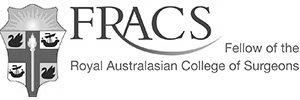Frozen Shoulder
What is a Frozen Shoulder?
Frozen Shoulder (adhesive capsulitis) is a debilitating condition that causes acute shoulder pain and gradually increasing stiffness until there is a complete loss of motion in the shoulder.
The pain and stiffness is caused by inflammation and thickening of the shoulder joint capsule and ligaments.
The ligaments normally stabilize the shoulder but when inflamed and thickened, can cause severe pain on rapid movement and restrict movement in all directions.
Frozen Shoulder is more common in older adults aged between 40 and 60 years and is more common in women than men.
What Causes Frozen Shoulder?
Doctors aren't sure why Frozen Shoulder occurs, however it is more likely to occur in patients who recently had to immobilize their shoulder for a long period or trauma (after surgery or an arm fracture). The shoulder capsule becomes thick, tight, and the stiff bands of tissue called adhesions may develop.
Patients are at higher risk of Frozen Shoulders who have the following conditions:
- Diabetes
- Thyroid disorders (Hypothyroidism, Hyperthyroidism)
- Heart Disease
- Parkinson’s Disease
Symptoms of Frozen Shoulder
Frozen Shoulder may cause pain and sufferers have the following symptoms:
- Dull Pain
- Stiffness and Loss of Motion
- Aching Pain
- Pain worsens with movement
- Lack of mobility
is pain, stiffness and a loss of motion in your shoulder.
Stages of Frozen Shoulder
Typically the course of frozen shoulder occurs in three different phases that last about a year. Rarely it can last up to 3 years.
- Freezing Stage - The patient develops a slow onset of pain. As the pain worsens, the shoulder loses motion.
- Frozen Stage - The patient experiences a slow improvement in pain, but the stiffness remains.
- Thawing Stage - the patient slowly regains full mobilisation of their shoulder as it returns to normal.
How is Frozen Shoulder Diagnosed?
Patients who suspect they have Frozen Shoulder require a fully diagnosis this can include:
Medical History
Your doctor will ask questions about:
- Current symptoms and what if any activities aggravate your condition, or how injury was sustained,
- Obtain a medical history including family or genetic links etc
- Determine any related former conditions diseases and treatments,
- Record health metrics (weight, mobility, blood pressure, heart rate, etc)
- Confirm medications, past and present
- Record habits, diet, exercise and other related actions
- Understand any risk factors or related complications or links
Physical Examination
Your doctor perform comprehensive physical evaluation that can include:
- Examining the affected area,
- Evaluate any swelling, pain, bruising or other features, etc
- Determine impact of condition such as range or motion, pain, diet, lifestyle,
- Record levels or severity of any symptoms
Diagnostic Testing
Once your doctor has completed the physical examination further tests maybe required. These tests can help your doctor determine or eliminate possible causes or impacts, or complete the diagnostic process and can include:
- Pathology - blood or other sample tests, lung functions, etc
- X-Ray -
- Ultrasound -
- Magnetic Resonance Imaging (MRI)
Once a final diagnosis has been completed your doctor can discuss with you and recommend any treatment options.
Non Surgical Treatment for Frozen Shoulder
Treatment for your condition can begin immediately and can include:
- Pain Medication - to treat pain or discomfort including nonsteroidal anti-inflammatory medications (NSAIDs) can relieve some
- Inflammation Medication - may be prescribed to alleviate swelling including antibiotics for infection control
- R.I.C.E. - To reduce the pain and swelling surrounding the injured area.
- Rest: Rest the affected area as more damage could result from putting pressure on the injury.
- Ice: Ice should be applied over a towel to the affected area
- Compression: Wrapping with an elastic bandage or an elasticated tubular bandage can help to minimize the swelling.
- Elevation: Elevating the injured area above heart level to help with any swelling and pain
- Exercise - may be recommended
- Bracing - may be recommended to brace
- Taping - may be applied over the affected areas to reduce pain.
- Orthotics - may be prescribed.
- Injection Therapies - may be prescribed to reduce inflammation and accelerate the healing of the patellar tendon.
- Platelet-Rich Plasma Therapy - may be prescribed to accelerate healing.
- Dry Needling - may be recommended to break up or destroy degenerative structures.
- Hyperthermia Thermotherapy: may be recommended to heat and/or cool damaged tissues while allowing the surface level tissues to stay cool.
- Extracorporeal Shockwave Treatment - may be recommended help to stimulate regeneration to damaged or torn soft tissue.
- Aspiration - may be used to remove fluid and reduce swelling or inflammation to relieve pain.
Surgical Treatment for Frozen Shoulder
Surgery for Frozen Shoulders is rarely required. It is more common in post-traumatic frozen shoulders that has not resolved within expected timeframes.
Shoulder Arthroscopy - surgery involves cutting the tight ligaments and capsule and removing the scar tissue from the affected shoulder. It can be performed with an arthroscope or with an open technique (larger incision). The primary advantage of arthroscopic technique is a shorter recovery time.
- Small incisions portals) are made.
- Insert the arthroscope to view the shoulder joint
- Review the extent of shoulder pathology or anomalies
- Perform the particular surgical procedure, if required such as repairing tears, tightening the capsule and ligaments.
- After stabilising the shoulder, the portals (incisions) are closed by suturing or by tape.
Occasionally, however, arthroscopic surgery may need to be converted to open surgery to properly repair the damage to internal structures.
What if Frozen Shoulder goes Untreated?
Frozen Shoulder is not life threatening but can severely impact quality of life. If untreated a Frozen Shoulder can lead to:
- Short Term Impact – lack or arm mobility
- Long Term Impact – continued arm mobility and recurring instances of Frozen Shoulder





